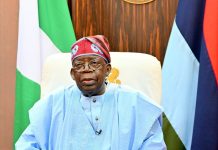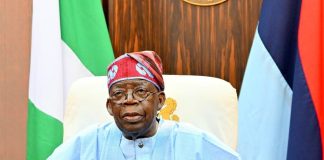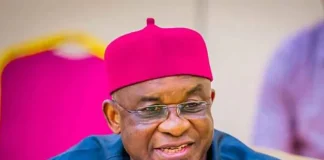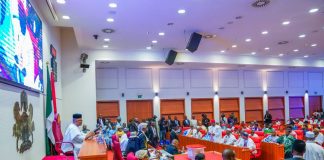🌿 Ruzu Non-Alcoholic Herbal Bitters
Ruzu Non-Alcoholic Herbal Bitters is a natural health supplement specially formulated to:
- ✅ Promote general wellness
- ✅ Detoxify the body
- ✅ Support the treatment of various ailments
Made from a powerful blend of 100% organic and medicinal herbs, Ruzu is completely alcohol-free, making it ideal for:
- 👪 All age groups
- 🌱 Health-conscious individuals
- 🌿 Anyone seeking non-alcoholic herbal remedies
Whether you're looking to boost your vitality, cleanse your system, or support healing the natural way, Ruzu Bitters offers a trusted herbal solution.
PricewaterhouseCoopers (PwC), a multinational professional services firm, has offered a cautiously optimistic outlook for Nigeria’s inflation rate.
Their latest economic report predicts a decline to 29.5% by the end of 2024. This represents a potential decrease from the current high inflation levels, which recently hit 33.95% in May 2024, according to the National Bureau of Statistics (NBS).
In the outlook, titled ‘Navigating economic reforms,’ PwC “projects a marginal decline in inflation to 29.5 per cent by year-end, balancing the effects of reforms, policy actions, external pressures and food prices; particularly in the second half of the year.”
Also, it anticipates that the Gross Domestic Product may grow marginally by 2.9 per cent on the back of sustained policy reforms although growth prospects may be limited by elevated economic pressures.
The report read, “Nigeria’s total public debt stood at N121.67tn ($91.46bn) as of March 31, 2024. The comparative figure for December 31, 2023, was N97.34 trillion ($108.23bn). Total Domestic Debt was N65.65tn ($46.29bn) while total external debt was N56.02tn ($42.12bn).”
The report went on to call on the government to “Prioritise macro stability by addressing security, social and pressure points of inflation and exchange rate pressures. Adopt scenario planning before any major economic reform is implemented to avoid unwarranted policy reversals e.g. cyber security levy.
READ ALSO:PWC warns against exploitation, as FIRS sets to implement tax initiative on traders
And for businesses, PwC urged the creation of “a clear-eyed strategy by revisiting your strategy and be clear on your must-haves to win in the future – regardless of any economic scenario.
“Re-visit your entire cost structure to establish short, mid, and long-term actions to fundamentally adjust for the future.
“Government must drive fiscal prudence by optimising spending on capital projects with the highest ROI, rationalise public service spending and improve revenue diversification and collection efficiency. It must decide when and how to introduce, defer, sequence, or stagger different policies based on current economic and social conditions,” the firm added.
The report attributes the projected decline to a combination of factors, including:
• The effects of ongoing government reforms and policy actions: The specific nature of these reforms and actions is not elaborated on in the PwC report, but they likely encompass fiscal and monetary policies aimed at curbing inflation.
• External pressures: While the report doesn’t detail the exact external pressures, global factors like volatile energy and commodity prices can significantly impact inflation in an import-reliant economy like Nigeria.
However, the forecast acknowledges that significant challenges remain. The projected 29.5% year-end inflation rate still represents a very high number. Additionally, the report mentions that elevated economic pressures may limit the potential for substantial economic growth, despite the anticipated decline in inflation.
This PwC report adds to the ongoing conversation about Nigeria’s economic outlook.
Here are some key takeaways to consider:
• Uncertainty surrounding the forecast: While PwC’s prediction offers a glimmer of hope, it’s crucial to acknowledge the inherent uncertainty in such forecasts. External factors and the effectiveness of government policies can significantly influence the actual inflation rate.
• Need for further details: The PwC report provides a headline figure, but a more comprehensive analysis would benefit from delving deeper. Specific details regarding the reforms, external pressures impacting the forecast, and potential risks to this prediction would be valuable for businesses and policymakers.
• Focus on long-term solutions: While a potential decrease in inflation is welcome news, addressing the root causes of high inflation is crucial for sustained economic growth and stability. Policies aimed at bolstering domestic production, reducing dependence on imports, and fostering diversification can lead to more resilient long-term economic performance.
In conclusion, PwC’s report offers a cautiously optimistic view of Nigeria’s inflation rate. However, a more comprehensive analysis and continued focus on long-term economic solutions will be essential for ensuring a stable and prosperous future for the Nigerian economy.
The post PwC forecasts 29% decline in Nigeria’s inflation rate by year-end appeared first on Latest Nigeria News | Top Stories from Naomisophyblog.















